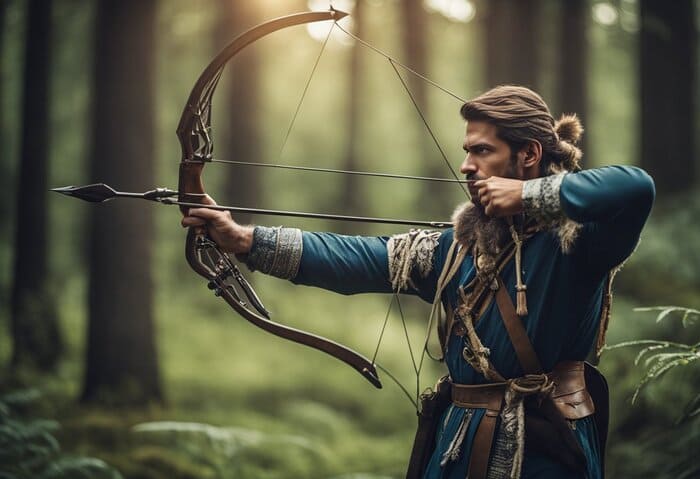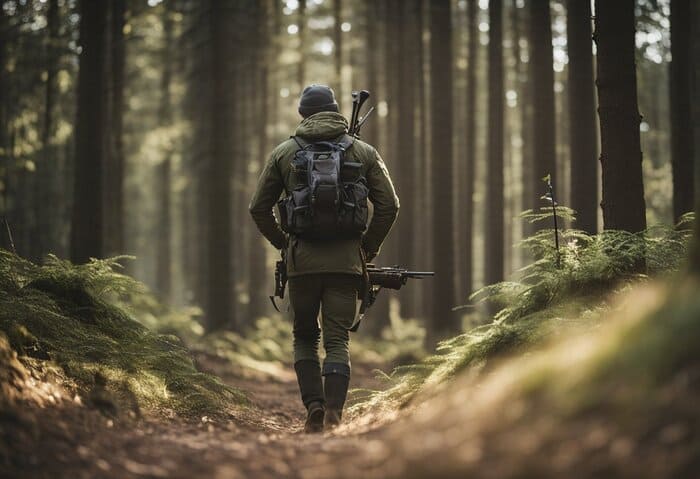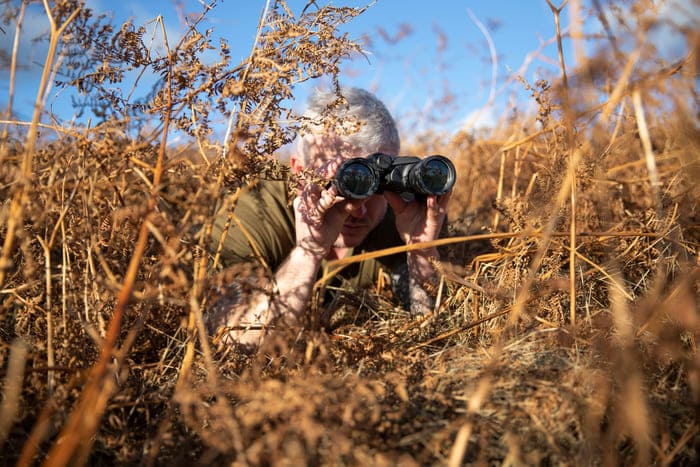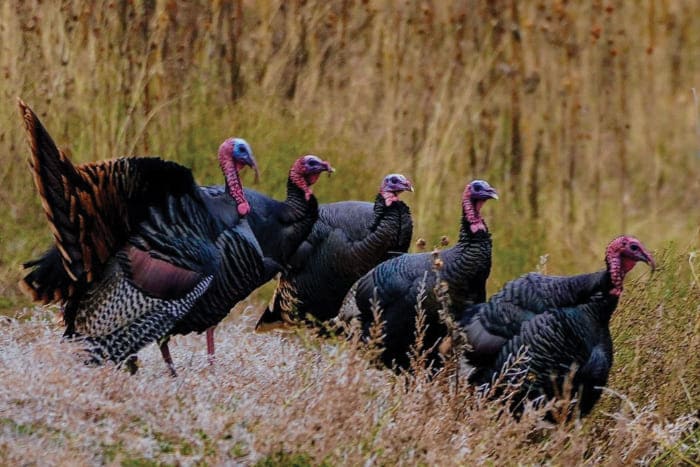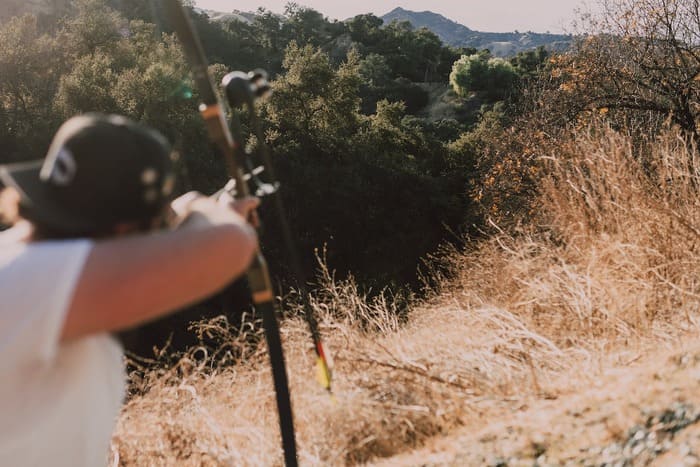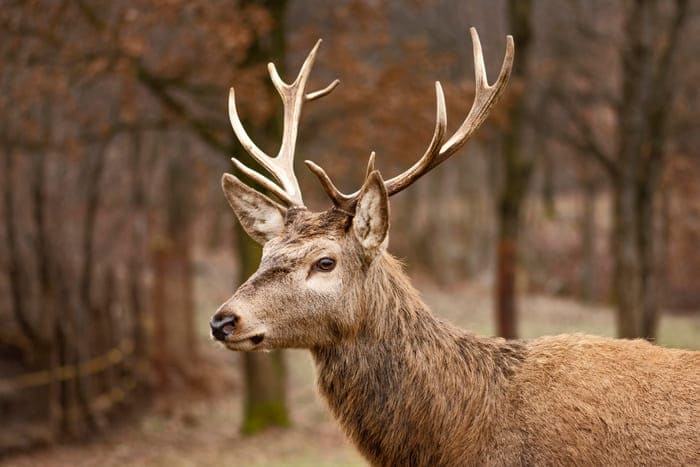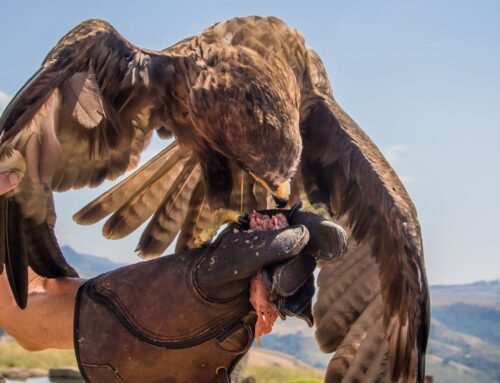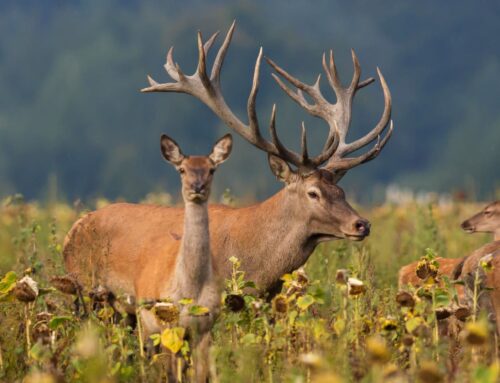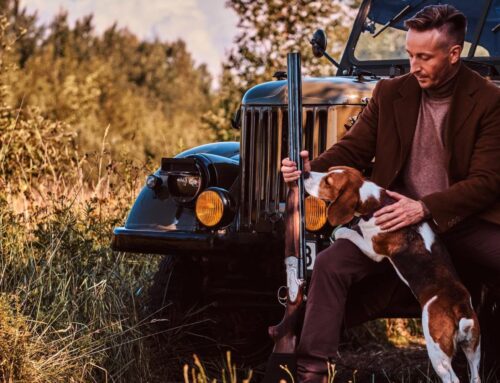Hunting as a Hobby: An Overview
Hunting is a popular outdoor activity enjoyed by millions of people worldwide. While some hunt for food, others do it as a hobby. Hunting as a hobby can be both challenging and rewarding, offering an opportunity to connect with nature and hone one’s skills.
For those who are new to hunting, it can seem daunting. However, with the right training and equipment, anyone can take up hunting as a hobby. There are several benefits to hunting, including physical and mental health benefits, environmental and conservation benefits, and the satisfaction of providing for oneself.
Despite its benefits, hunting as a hobby is not without controversy. Some people view hunting as cruel and unnecessary, while others see it as an important part of their cultural heritage. It is important to understand the laws and regulations surrounding hunting and to practice responsible hunting methods to ensure the safety of both the hunter and the environment.
History of Hunting
Hunting has been a part of human history since the beginning of time. What started as a means of survival has evolved into a sport that is enjoyed by millions of people around the world. The history of hunting is a fascinating and complex story that spans thousands of years and crosses many cultures and societies.
Evolution of Hunting Practices
The earliest humans were hunters and gatherers, and hunting was a crucial part of their daily lives. They hunted for food, clothing, and other resources, and their hunting practices were simple and rudimentary. They used basic weapons such as spears, rocks, and sticks to take down their prey.
Over time, humans developed more advanced hunting techniques and tools. They began to use bows and arrows, which allowed them to hunt from a distance and take down larger animals. They also developed traps and snares, which were used to capture animals without harming them.
As societies became more complex, hunting became a symbol of power and status. Kings and nobles would organize elaborate hunting expeditions, and hunting became a popular hobby among the wealthy.
Significant Hunters and Cultures
Throughout history, there have been many significant hunters and cultures that have shaped the history of hunting. One of the most famous hunters in history is Theodore Roosevelt, who was an avid hunter and conservationist. He is credited with helping to establish the national park system in the United States and promoting sustainable hunting practices.
In many cultures, hunting has played an important role in religious and cultural traditions. For example, in Native American culture, hunting was seen as a way to connect with the natural world and to honor the animals that were hunted.
Today, hunting is still a popular hobby and a way of life for many people around the world. While hunting practices have evolved over time, the basic principles of hunting remain the same. It is a way to connect with nature, to provide for oneself and one’s family, and to enjoy the great outdoors.
Benefits of Hunting
Hunting offers a range of benefits that contribute to its popularity as an outdoor hobby. Let’s explore some of these benefits:
Outdoor Hobby
Hunting is an ideal outdoor hobby for those seeking a fast-paced and exciting pursuit. Unlike indoor hobbies, hunting allows individuals to immerse themselves in nature, exploring the wilderness and engaging with the environment.
Patience and Self-Satisfaction
Hunting teaches individuals the value of patience and perseverance. It requires waiting for the right moment to make a shot, honing one’s focus and discipline. Successfully hunting and harvesting game can provide a sense of self-satisfaction and accomplishment.
Connection with Nature
Contrary to popular belief, hunting can foster a deep connection with nature. It involves understanding the behaviors and patterns of wildlife, spending time in the wilderness, and gaining a greater appreciation for the natural world.
Wildlife Management
Hunting plays a crucial role in wildlife management. By obtaining hunting permits and adhering to regulations, hunters assist in controlling and maintaining population levels of various species. This management helps prevent overpopulation issues that can result in damage to ecosystems and agricultural lands.
Sustenance and Organic Food
One of the significant benefits of hunting is the ability to provide sustenance for oneself and others. By hunting game, individuals can source their own food, ensuring its quality, and minimizing reliance on mass-produced, chemically-treated options. Hunting also allows for a more sustainable and organic approach to food consumption.
Hunting as a Physical and Mental Pursuit
Engaging in hunting offers numerous physical and mental benefits. Let’s explore how hunting contributes to overall well-being:
Physical Fitness
Hunting requires physical stamina and endurance, as it often involves traversing challenging terrains, carrying gear, and tracking game. Regular hunting activities can help improve cardiovascular health, strength, and overall fitness levels.
Mental Well-being
Spending time in nature and engaging in hunting activities can have positive effects on mental well-being. Hunting provides an opportunity to disconnect from the stresses of daily life, promoting relaxation, mindfulness, and a sense of tranquility.
Problem-Solving and Adaptability
Hunting presents various challenges that require problem-solving skills and adaptability. Hunters must navigate changing weather conditions, make strategic decisions, and adjust their approach based on the behavior of their prey. These experiences foster resilience, critical thinking, and resourcefulness.
Hunting Equipment
To engage in hunting effectively and safely, it is essential to have the appropriate gear. The gear required for hunting can vary depending on the specific hunt and the preferences of the hunter. Let’s explore some of the essential gear commonly used in hunting:
Firearms and Bows
The choice of a hunting weapon is a personal one and depends on factors such as the type of game, personal preferences, and experience level. Some hunters prefer firearms, while others prefer bows. It is important to choose a weapon that is appropriate for the game being hunted and to practice using it before heading out into the field.
Clothing and Gear
Hunting can be a physically demanding activity, and it is important to wear appropriate clothing and gear. Clothing should be comfortable, durable, and provide adequate protection from the elements. Camouflage clothing can help hunters blend in with their surroundings. Other essential gear includes a hunting backpack, binoculars, a hunting knife, and a first aid kit.
Tracking and Navigation Tools
Hunting often involves tracking game through the wilderness, and having the right tools can make this task much easier. A GPS device can help hunters navigate through unfamiliar terrain, while a map and compass can serve as backup. Other essential tools include a rangefinder, which can help hunters accurately estimate the distance to their target, and a trail camera, which can provide valuable information about game movements in the area.
Overall, having the right hunting equipment can make a significant difference in the success of a hunt. Hunters should carefully consider their equipment needs and choose gear that is appropriate for the game being hunted and the environment in which they will be hunting.
Types of Hunting
Hunting is a popular hobby that involves pursuing and killing wild animals for sport or food. There are several types of hunting, each with its own set of challenges and techniques. In this section, we will explore some of the most common types of hunting.
Big Game Hunting
Big game hunting involves pursuing large animals such as deer, elk, and bear. This type of hunting requires a lot of skill and patience, as these animals are often difficult to track and take down. Hunters typically use rifles or bows to hunt big game and may use bait or scent lures to attract their prey.
Small Game Hunting
Small game hunting involves pursuing smaller animals such as rabbits, squirrels, and raccoons. This type of hunting is often done with shotguns or small caliber rifles and may involve using dogs to flush out the animals. Small game hunting is often less challenging than big game hunting, but can still be a rewarding and enjoyable experience.
Bird Hunting
Bird hunting involves pursuing birds such as ducks, geese, and pheasants. This type of hunting requires a lot of skill and patience, as birds are often difficult to spot and shoot. Hunters typically use shotguns to hunt birds and may use decoys or calls to attract them.
Bowhunting
Bowhunting involves pursuing animals using a bow and arrow. This type of hunting requires a lot of skill and practice, as it requires the hunter to get close to the animal in order to make a clean shot. Bowhunting can be done for both big and small game and can be a very challenging and rewarding experience.
Overall, there are many different types of hunting, each with its own set of challenges and rewards. Whether you prefer to hunt big game, small game, birds, or use a bow and arrow, there is a type of hunting that will suit your interests and skill level.
Hunting skills
Hunting requires a combination of skills to ensure a successful and ethical experience. Let’s explore some of the key skills that hunters develop:
Shooting and Marksmanship
A fundamental skill for hunters is shooting and marksmanship. Whether using a rifle, shotgun, or bow, hunters must practice regularly to improve accuracy and ensure humane kills. This involves understanding ballistics, adjusting for distance and wind, and honing the ability to take precise shots.
Scouting and Tracking
Successful hunting often relies on effective scouting and tracking. Hunters must learn to read signs of animal activity, identify tracks and trails, and understand how animals behave in different environments. This knowledge allows hunters to position themselves strategically and increase their chances of encountering game.
Concealment and Stealth
To get within range of their target, hunters must master the art of concealment and stealth. This involves blending into the natural surroundings, minimizing noise and movement, and employing camouflage techniques. By remaining unseen and unheard, hunters can get closer to their prey without alarming them.
Field Dressing and Butchering
Once an animal has been harvested, hunters must possess the skills to field dress and butcher the game properly. This involves removing the internal organs, skinning the animal, and preparing it for consumption. Proper field dressing and butchering techniques ensure food safety and maximize the utilization of the harvested animal.
Hunting Techniques
Hunting is a challenging and rewarding hobby that requires skill, patience, and knowledge. There are several techniques that hunters use to increase their chances of success. Here are some of the most common hunting techniques:
Stalking
Stalking is a technique where the hunter moves quietly and stealthily through the woods or fields in search of game. This technique is best used when hunting big game like deer or elk. Hunters must move slowly and carefully, using cover and concealment to avoid being seen or heard by their prey.
Calling
Calling is a technique where the hunter uses a device to mimic the sounds of an animal in order to attract it closer. This technique is commonly used when hunting birds or predators like coyotes. Hunters must be familiar with the sounds of the animals they are hunting and use the appropriate call to lure them in.
Blind and Decoy Use
Blind and decoy use is a technique where the hunter sets up a blind or decoy to attract game. A blind is a camouflaged shelter that the hunter can sit in while waiting for game to come by. A decoy is a lifelike replica of an animal that the hunter can use to attract other animals. This technique is commonly used when hunting waterfowl or turkeys.
Hunters should choose the technique that best suits their hunting style and the type of game they are pursuing. It’s important to practice and perfect these techniques to increase your chances of success while hunting.
Preparing for a Hunt
Before embarking on a hunting trip, it is important to properly prepare both physically and mentally. This section will outline the key steps to take in order to ensure a successful and safe hunt.
Physical Preparation
Hunting can be physically demanding, so it is important to be in good physical shape. This includes both cardiovascular endurance and strength training. A regular exercise routine that includes hiking, running, and weight training can help prepare the body for the physical demands of hunting.
In addition to exercise, it is important to ensure that proper nutrition is being consumed. A balanced diet that includes lean protein, complex carbohydrates, and healthy fats can help provide the energy needed for a successful hunt.
Skill Development
Hunting requires a variety of skills, including marksmanship, tracking, and field dressing. It is important to develop these skills prior to heading out on a hunt. This can be done through practice at a shooting range, tracking courses, and hunting education courses.
It is also important to become familiar with the equipment being used, such as firearms, bows, and knives. Proper maintenance and care of equipment can help ensure a successful hunt.
Planning and Research
Proper planning and research can greatly increase the chances of a successful hunt. This includes researching the area being hunted, including the terrain, weather, and wildlife patterns. It is also important to obtain any necessary permits and licenses prior to the hunt.
Creating a detailed hunting plan that includes location, equipment, and safety protocols can help ensure a safe and successful hunt. This plan should be shared with others who are aware of the location and expected return time.
Overall, proper preparation is key to a successful and safe hunting trip. By focusing on physical preparation, skill development, and planning and research, hunters can increase their chances of a successful and enjoyable experience.
Engaging with Nature
Hunting offers a unique opportunity to engage with nature and develop a deeper understanding of the natural world. Let’s explore some aspects of hunting that foster this connection:
Wildlife Observation
Hunting requires hunters to spend extended periods in the wilderness, observing the behaviors and movements of wildlife. This firsthand experience allows for a greater appreciation of the intricate ecosystems and the interconnectedness of different species.
Conservation and Habitat Preservation
Hunters are often at the forefront of conservation efforts, as they understand the importance of preserving habitats and maintaining balanced ecosystems. Many hunters actively contribute to habitat restoration, wildlife management programs, and conservation organizations, ensuring the longevity of natural resources.
Environmental Stewardship
Hunting encourages a sense of environmental stewardship, as hunters recognize the fragility of ecosystems and the need for sustainable practices. Hunters advocate for responsible land use, reduction of waste, and the protection of natural resources for future generations.
Community and Culture
Hunting is a hobby that can bring people together and create a sense of community. Hunting clubs and associations provide a space for hunters to connect with others who share their passion. These clubs often organize events and outings, such as group hunts or shooting competitions. By participating in these activities, hunters can meet new people and build lasting relationships.
Hunting Clubs and Associations
Hunting clubs and associations are a great way to get involved in the hunting community. These organizations often have a wealth of knowledge and resources that can help hunters improve their skills and learn new techniques. They may also provide access to private land for hunting and offer discounts on gear and equipment.
One example of a hunting club is the National Wild Turkey Federation. This organization is dedicated to the conservation of wild turkey and their habitats. They also promote hunting as a way to connect with nature and preserve the hunting tradition. By joining a club like this, hunters can not only improve their skills but also contribute to the conservation efforts.
Traditions and Social Aspects
Hunting is a hobby that is steeped in tradition. Many hunters learn the sport from family members and pass it down to future generations. This creates a strong sense of identity and belonging within the hunting community.
Hunting also provides a space for social interaction. Many hunters consider the time spent in the field with friends and family to be just as important as the hunt itself. This social aspect of hunting can create lasting memories and strengthen relationships.
Hunting Ethics and Conservation
Hunting is a popular hobby that requires adherence to ethical and conservation practices to ensure its sustainability. The following subsections discuss some of the key aspects of hunting ethics and conservation.
Sustainable Practices
Sustainable hunting practices involve taking only what is necessary, minimizing waste, and ensuring that the populations of targeted species are not depleted. Hunters should avoid shooting animals that are not the intended target, as well as those that are pregnant or nursing. They should also follow legal bag limits and report any illegal hunting activities.
Legal Regulations
Hunting regulations vary by state and country, and hunters should be familiar with the laws that apply to their specific location. This includes obtaining the proper licenses and permits, adhering to hunting seasons, and following specific hunting methods. Violating these regulations can result in fines, loss of hunting privileges, and even criminal charges.
Wildlife Management
Population Control
One of the primary reasons for hunting is population control. By responsibly harvesting animals within regulated seasons and limits, hunters assist in managing wildlife populations. This prevents overpopulation, which can lead to habitat degradation, disease outbreaks, and increased conflicts with humans.
Conservation Funding
Hunting licenses, permits, and fees contribute significantly to conservation efforts and habitat preservation. The revenue generated from hunting activities is often reinvested in wildlife management programs, habitat restoration, and research initiatives.
Species Management
Hunting allows for the targeted management of specific species, particularly those that pose a threat to ecosystems or agricultural interests. It helps mitigate the impact of certain animals on crops, reduces human-wildlife conflicts, and promotes healthier populations.
Hunting as a hobby requires adherence to ethical and conservation practices to ensure its sustainability. Sustainable practices, legal regulations, and wildlife management are all important aspects of hunting that must be considered by hunters. By following these guidelines, hunters can enjoy their hobby while also contributing to the conservation and management of wildlife populations.
Processing and Utilization
Hunting is not just about the thrill of the chase, but also about the satisfaction of utilizing the game that has been harvested. Processing and utilizing the meat is an important aspect of hunting as a hobby. Here are some key aspects to consider:
Field Dressing
Field dressing is the process of removing the internal organs of the animal immediately after it has been harvested. This is done to prevent the meat from spoiling and to make it easier to transport. It is important to do this as soon as possible after the animal has been harvested. The following are the steps involved in field dressing:
- Lay the animal on its back and spread its legs apart.
- Make a shallow cut around the anus and then cut through the pelvic bone to remove the anus and genitals.
- Make a shallow cut from the base of the breastbone to the pelvis.
- Cut through the diaphragm to expose the internal organs.
- Reach in and carefully remove the internal organs, being careful not to puncture the intestines or bladder.
Butchering
Butchering is the process of breaking down the animal into usable cuts of meat. Once the animal has been field dressed, it can be transported to a location where it can be butchered. The following are the steps involved in butchering:
- Hang the animal by the hind legs with a gambrel or other device.
- Remove the head, skin, and feet.
- Cut the animal into halves or quarters.
- Remove the internal organs that were not removed during field dressing.
- Remove the meat from the bones and separate it into usable cuts.
Meat Preservation
Meat preservation is the process of keeping the meat fresh for as long as possible. This is important because it can take some time to consume all of the meat from a large animal. The following are some methods of meat preservation:
- Freezing: Meat can be frozen for long-term storage. It is important to wrap the meat tightly to prevent freezer burn.
- Canning: Meat can be canned in jars for long-term storage. It is important to follow proper canning procedures to prevent spoilage.
- Drying: Meat can be dried into jerky for long-term storage. It is important to use the proper equipment and follow proper procedures to prevent spoilage.
By following these steps, hunters can fully embrace the art of processing their own wild game and unlock the true rewards of the hunt.
Hunting Safety
Hunting can be a thrilling and rewarding hobby but it also comes with inherent risks. It is important for hunters to prioritize safety to ensure that they and their fellow hunters stay out of harm’s way.
Firearm Safety
Firearm safety is one of the most important aspects of hunting safety. Hunters should always treat their firearms as if they are loaded, even if they know they are not. They should also keep their firearms pointed in a safe direction and never point them at anything they do not intend to shoot. Additionally, hunters should be aware of their target and what is beyond it to prevent accidents.
First Aid
Hunters should always carry a first aid kit with them while hunting. The kit should contain basic medical supplies such as bandages, antiseptic, and pain relievers. It is also important for hunters to have knowledge of basic first aid procedures in case of an emergency.
Emergency Procedures
In case of an emergency, hunters should have a plan in place. They should know the location of the nearest hospital or medical facility and have a means of communication in case of an emergency. It is also important for hunters to inform someone of their hunting plans and expected return time in case they do not return as planned.
Overall, hunting safety should be a top priority for all hunters. By following basic safety procedures and being prepared for emergencies, hunters can minimize the risks associated with this exciting hobby.
Conclusion
Hunting is a versatile and engaging outdoor hobby that offers a range of benefits. From the thrill of the hunt to the connection with nature, hunting provides a unique and rewarding experience for enthusiasts. With proper knowledge, ethical practices, and a commitment to wildlife conservation, hunters can enjoy the pursuit while contributing to the preservation of ecosystems and the sustainable use of natural resources. Whether it’s for sustenance, recreation, or a deep appreciation of the natural world, hunting remains a cherished and timeless pursuit.
Frequently Asked Questions
What are the regulations surrounding hunting for sport?
Hunting regulations vary by location and species hunted. It is important for hunters to research and understand the laws and regulations in their area before engaging in hunting as a hobby. This includes obtaining the necessary licenses and permits, following bag limits, and adhering to hunting season dates. Regulations may also include restrictions on hunting methods and the use of certain types of equipment.
What skills are necessary for engaging in hunting as a hobby?
Hunting requires a combination of physical and mental skills. Physical skills include stamina, endurance, and hand-eye coordination. Mental skills include patience, focus, and the ability to make quick decisions under pressure. In addition, hunters must have knowledge of the environment and animal behavior, as well as proficiency in the use of hunting equipment.
How costly is it to pursue hunting as a hobby?
The cost of hunting as a hobby can vary depending on a number of factors, including the type of game being hunted, the location, and the equipment used. Some costs associated with hunting may include licenses and permits, hunting equipment, ammunition, and travel expenses. It is important for hunters to carefully consider their budget and expenses before beginning to pursue hunting as a hobby.
What are the ethical considerations involved in recreational hunting?
Recreational hunting raises a number of ethical considerations, including animal welfare, conservation, and sustainability. It is important for hunters to engage in ethical hunting practices, such as using appropriate equipment and techniques to minimize animal suffering, and following regulations to ensure the sustainability of wildlife populations.
Can hunting be considered a viable career or means of income?
While some individuals may pursue hunting as a career or means of income, it is important to note that this is not a viable option for everyone. Hunting as a profession may require specialized training and education, as well as significant experience and expertise. Additionally, the availability of hunting-related jobs may vary depending on location and industry demand.
How can one discover and get started with hunting as a hobby?
Individuals interested in pursuing hunting as a hobby can start by researching local hunting regulations and obtaining the necessary licenses and permits. They can also seek out resources and training opportunities, such as hunting courses or mentorship programs. It is important for new hunters to start small and gradually build their skills and experience, while also prioritizing safety and ethical hunting practices.
LEARN & GROW CORNER
Baseball for Beginners
Baseball for Beginners: A Comprehensive Guide to the Basics Baseball is one of the most popular sports in the United States, enjoyed by millions of people of all ages. It's a game that requires [...]
Collecting Paper Currency
Collecting Paper Currency Hobby: Tips and Tricks for Building a Unique Collection Are you interested in the world of paper currency collecting? If so, you're in for a treat. Collecting paper money is a [...]
Coin Collecting Hobby
Coin Collecting Hobby: A Guide to Starting Your Collection If you've ever found yourself fascinated by the intricate designs and historical significance of coins, you might want to consider starting a coin collecting hobby. [...]
The Stamp Collecting
The Stamp Collecting: A Comprehensive Guide Stamp collecting is a fascinating hobby that has been enjoyed by people all over the world for over a century. Whether you're a seasoned collector or a newcomer [...]
ABC Gardening Hobby
ABC Gardening Hobby: Tips and Tricks for Beginners If you're looking for a rewarding and enjoyable hobby, gardening might be the perfect fit for you. A B C Gardening is a beginner-friendly approach to [...]


